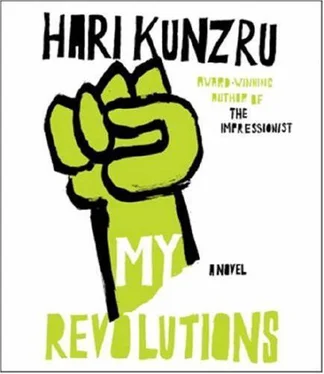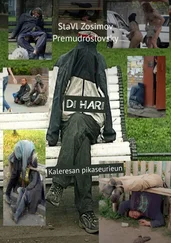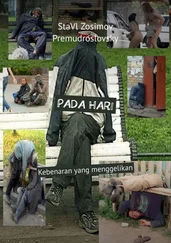“So what kind of work do you do, Miles?” asked Miranda, as we sat down to eat.
“Consultancy.”
“What kind?”
“Public affairs. I spend a lot of time at Westminster, doing
strategy work for various people, generally oiling the wheels of democracy.”
“Sounds exciting.”
“It’s very dull.”
“So are you Labour or Tory?” asked Sam.
“Neither. I’m my own man. I like to think of myself as a progressive.”
His own man. Whatever Miles was it wasn’t that. Miles Bridgeman would always be someone’s creature. To Sam and Miranda’s delight, he told more anecdotes about our supposed exploits back in the old days, slaloming in and out of the truth, adding deft little touches, hidden allusions, subtle reminders to me of all the other things he wasn’t telling. I was completely powerless, as removed from the situation as an accident victim, floating above the scene, looking down.
He made a few slipups, such as telling Miranda we’d known each other at university. Unlike Chris Carver, Michael Frame hadn’t gone to university. I improvised. “I was only there for that one term, remember? Then I dropped out.” He was quick to take the hint and I had the disturbing sense that we were now colluding with each other, jointly spinning a yarn. It was a story tailored to its audience, a confection of swinging London and San Francisco flower-power, as phoney as one of those television nostalgia shows where they soundtrack archive footage with old Top 4o hits. Miranda and Sam lapped it up.
“It’s so great you came, Miles,” said Miranda. “Mike never talks about any of this. I had no idea he was so involved in that sixties milieu.” She made it sound remote, historical. Waterloo or the Armada. Miranda’s youth was all punk bands and cider, or whatever they had to drink in Hendon. Sam’s primary reference point was probably Austin Powers. “You know, Mike doesn’t have any photos from back then,” mused Miranda. “He barely mentions it at all. He’s so unsentimental. Actually, I think you’re the first person I’ve met. .” She trailed off.
I knew exactly what she was thinking. Miles was the first person she’d ever met who’d known me for longer than she had. I could
see the starkness of it clouding her mind, an oddity about her life
that she hadn’t noticed before.
“So you haven’t kept in touch with the old gang?” Miles asked
me sweetly. I shook my head. “Not even Anna and Sean?”
“Who are Anna and Sean?” asked Sam.
My mouth was dry. Miles left me on the hook for a while, cocking
his head to one side and examining me with a vaguely scientific
air. Then he answered himself: “Just a couple we knew. Although—
weren’t you and Anna, you know? Didn’t you have a thing for a
while?”
Now Miranda and Sam were all ears.
“She was your girlfriend?”
“You’ve never spoken about any Anna.”
Sam smelled gossip. “What was she like?”
“Go on,” says Miles. “Tell her.”
“She wasn’t my girlfriend. I haven’t heard anything about either
of them.”
Sam frowned at me.
Miles rubbed his chin. “Shame,” he said.
Miranda was frustrated. “I don’t know why you’re being so
tight-lipped, Mike. I’m not going to be jealous of some lover you
had thirty years ago. It’s part of you .” She patted my hand, made
big eyes. How hungry she was for this. How I’d starved her.
“Did you go traveling together?” she asked peevishly, when it
became clear I wasn’t going to say anything voluntarily.
“No. We last saw each other just before I left.”
Miles served himself another scoop of ice cream. “So where did
you go, Mike? India, was it? You never told me at the time.”
“I was in India for a while. I went overland through Asia. I spent
several years in Thailand.”
“How very interesting. Bangkok?”
“For a while.”
Miranda cued up her favorite line. “Mike was in a monastery.”
Miles looked wry. “Really, Mike? That surprises me.”
“Why?” asked Miranda.
“Well, he was never really into the spiritual side of things. He was more of a political animal. So you became a Buddhist, Mike?”
“Yes.”
“And you’re still a Buddhist?”
“No — at least, not in any meaningful way.”
“But you don’t eat meat.”
“Neither of us does,” said Miranda.
“Simplicity. Nonviolence. I admire you.” Again that predatory grin.
It dragged on for hours, but at last Miles looked at his watch and decided it was over. He had, he said, a long drive back to London. He ought to get going. Miranda hugged him and gave him some samples of the new Bountessence men’s line. Sam kissed him on the cheek. He handed me a card. “In case you lost the last one,” he said. I walked him to his car, which was parked on the street outside.
“So, you’ll come and see me.”
I nodded, defeated. “When?”
“I’ll let you know. I’ll phone you. Don’t let me down, Chris. You won’t let me down, will you?”
No, I said, I wouldn’t let him down.
“You’re such a dark horse,” murmured Miranda, as we lay in bed. She snuggled closer to me, eager to explore our new intimacy. Thankfully she wasn’t confident enough to say Anna’s name.
* * *
Round and round. The sky’s getting lighter. I’m experiencing momentary drop-outs, instants when my mind is completely blank. When I finally turn off the périphérique I have a near-miss as someone unexpectedly pulls out in front of me. Overreacting, I jerk the wheel and scrape the near-side wing against the crash-barrier. That’s it. No more. I need to sleep, or at least close my eyes. I think I’m on the right route now, somewhere in the southeastern sprawl of the Paris suburbs, heading out of the city. I pull into a rest area, where I piss into a dark corner, broken glass crunching under my feet. Leaning out of the passenger door, I splash my face with bottled water, recline the car seat as far back as it will go and lie down. For a while, headlights continue to pass behind my eyelids. Then they stop.
I’m woken by a gloved hand tapping on the window. Daylight. A pair of policemen are peering at me through the steamed-up glass. I sit up with a jolt and open the door, rubbing my eyes. There’s a certain amount of confusion, but the general gist is that they want to see my passport. I dig through my luggage, wondering if they’re going to arrest me. Perhaps I’m on some kind of list. As they check my details, I get out and look around at the desolate place where I’ve spent the night. Above me looms a row of huge housing blocks, slabs of seventies concrete faced with cheerless primary-colored panels. The rest area is a dumping ground for HGV tires and building waste. The policemen ask me to walk up and down, checking, I think, to see if I’m drunk. I see a row of long black scratches on the car’s paintwork where I hit the barrier. So do they, but finally they let me go, repeating the word hôtel , clearly and patiently, as one would to a child.
I drive away, checking in the rearview mirror to see if they’re following me. A few kilometers down the road I stop at a service station to fill the tank. In the brightly lit café I drink a coffee and eat some kind of plastic-wrapped pastry, all sugar and synthetic apple jam. I watch a truck driver flicking through a selection of pornography at the news concession, carefully making his choice. The sugar gives me a rush of clarity. Out of habit, I just paid with my credit card. I’m angry with myself. So stupid, leaving a trail.
Does it really matter? Perhaps not. They’re going to find me, however careful I am. I have no resources. My choices are limited. I want to speak to Anna before they catch up with me. I want to hear how it was for her. I want her to say my name. After that, they can do what they like.
Читать дальше












